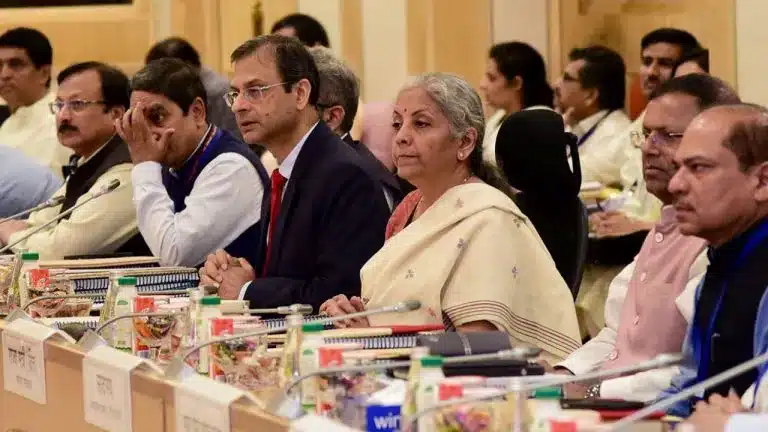Major Rate Reductions Expected at Upcoming GST Council Meeting

The Goods and Services Tax (GST) Council is set to convene soon, with significant discussions anticipated regarding the eight-year-old tax regime. The council aims to evaluate potential tax reductions on various consumer goods currently taxed at 12%, as well as reconsidering the tax burden on high-end items like air conditioners. Additionally, as the compensation cess for states is scheduled to conclude in March, plans to impose a new cess on certain sin goods, including tobacco, are also on the agenda to mitigate revenue losses for states.
Review of Consumer Goods Taxation
The GST Council’s upcoming meeting will focus on revising the tax structure for consumer goods, particularly those in the 12% tax bracket. This review comes as part of a broader effort to make essential items more affordable for consumers. The council is considering lowering taxes on various goods, including air conditioners, which currently fall under the highest tax category. The aim is to alleviate financial pressure on consumers while ensuring that the tax system remains equitable and sustainable.
The discussions will also address the implications of these tax changes on state revenues. States have expressed concerns about potential revenue losses resulting from tax cuts, which could hinder their financial stability. The GST Council’s decisions will need to balance the interests of consumers with the fiscal health of state governments, making this a critical point of discussion.
Compensation Cess and Revenue Considerations
As the compensation cess, which has been a financial lifeline for states since the implementation of GST, is set to expire in March, the council is exploring alternative revenue sources. One proposal includes imposing a new cess on sin goods, such as tobacco, to help offset potential revenue shortfalls. This move aims to ensure that states do not face significant financial challenges as they adjust to the end of the compensation cess.
The council’s deliberations will also consider the broader economic implications of these changes. While some members advocate for tax reductions to stimulate consumption, others caution that such measures could lead to a decrease in state revenues. The council is tasked with finding a solution that supports both consumer interests and state financial health, a challenge that requires careful negotiation and consensus-building among stakeholders.
Insurance Taxation and Middle-Class Relief
Another key topic on the agenda is the taxation of insurance products. The Centre is advocating for a reduction in the GST rate on pure term insurance plans, which currently attract an 18% tax. The proposal aims to shift these plans into a nil tax bracket, providing significant relief to middle-class consumers. Life insurance companies have been lobbying for a 12% tax rate instead, highlighting the need for a balanced approach that considers both consumer affordability and industry sustainability.
Additionally, the council is expected to address health insurance taxation, with potential relief measures under consideration. The outcome of these discussions could lead to substantial changes in how insurance products are taxed, impacting millions of consumers across the country. The council’s decisions will be closely watched, as they could reshape the insurance landscape and provide much-needed support to middle-class families.
Future Directions and Consensus Building
As the GST Council prepares for its meeting, the need for a comprehensive overhaul of the tax system is clear. Discussions have been ongoing for over a year, but achieving consensus has proven challenging. The group of ministers tasked with GST rationalization has yet to propose broad-based changes, often suggesting minor tweaks instead.
The council aims to establish a stable framework that minimizes the need for frequent adjustments, providing certainty for businesses and consumers alike. A final decision on the proposed changes is expected before the start of the monsoon session, with the Centre open to some revenue loss if it leads to increased consumption and overall economic benefit. Political maneuvering and consensus-building will be essential as the council seeks to navigate these complex issues and implement meaningful reforms in the GST framework.
Observer Voice is the one stop site for National, International news, Sports, Editor’s Choice, Art/culture contents, Quotes and much more. We also cover historical contents. Historical contents includes World History, Indian History, and what happened today. The website also covers Entertainment across the India and World.
Follow Us on Twitter, Instagram, Facebook, & LinkedIn

